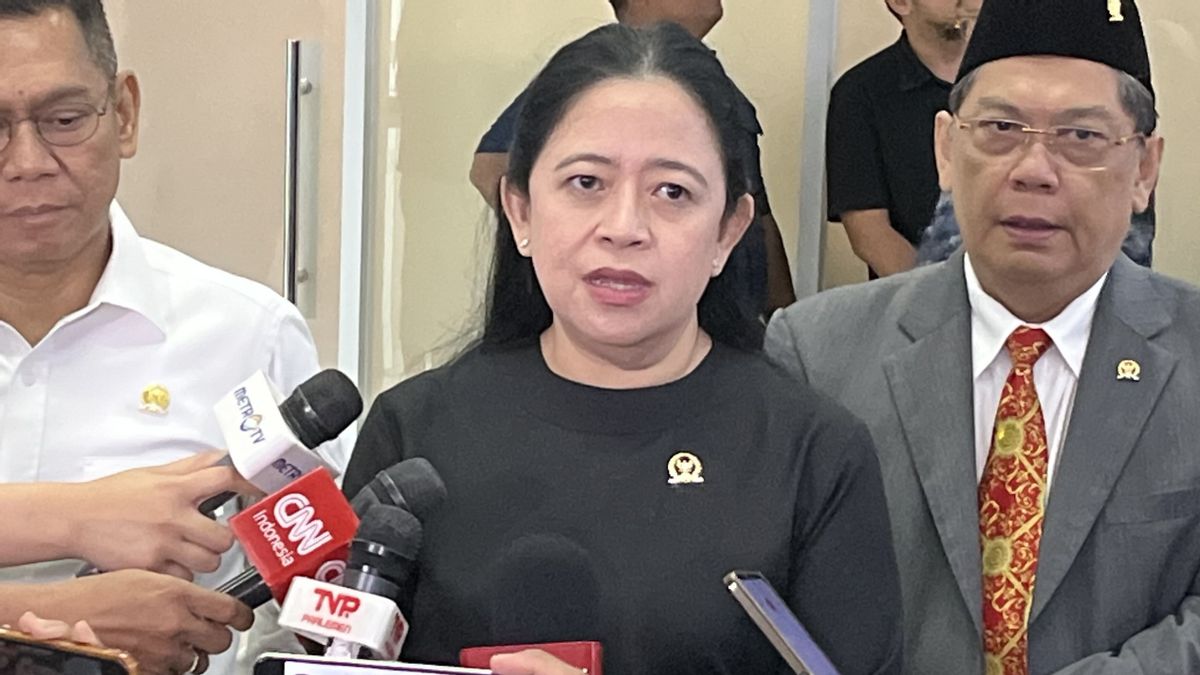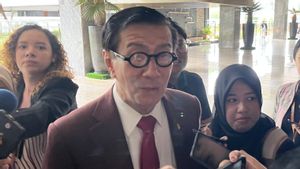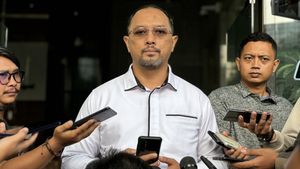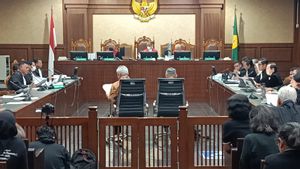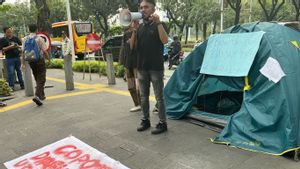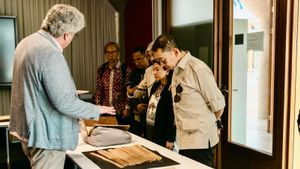JAKARTA - The chairman of the Indonesian House of Representatives, Puan Maharani, is concerned about the findings of hundreds of junior high school (SMP) students in Buleleng Regency, Bali, who have not been able to read smoothly but are smoothly social media (medsos).
Puan said this finding needed serious attention, because it reflected a gap in the fulfillment of basic rights for education in Indonesia.
"How is it possible for us to talk about technological advances, future economies, and superior human resources, if there are still junior high school children who have not been able to read smoothly? This is not just an education issue, this is a big challenge in our efforts to improve people's welfare," said Puan Maharani, Thursday, April 17.
As is known, hundreds of junior high schools in Buleleng Regency, Bali are reportedly unable to read smoothly, even though they are called smoothly playing social media. This finding is a concern considering the ability to read students should have been completed since students were in elementary school (SD).
Deputy Regent (Wabup) Buleleng Gede Supriatna is of the view that junior high school students find it difficult to read because they play social media too often and suggest that the use of cellphones (HP) in the school environment be limited. Puan also agreed with this and hoped that these findings would receive follow-up as soon as possible.
"The ability to read is the basic foundation for people's lives. This finding in Buleleng Bali is a reflection of the inequality of education services and the need for serious attention from all stakeholders," he said.
Puan is worried that if basic rights such as literacy have not been fulfilled, it will have an impact on the future of children. "When reading skills have not been achieved evenly, we must introspect that there is still a lot that needs to be improved in our education governance," said Puan.
Based on the information from the local government, students in Buleleng who have not been able to read it are also considered less motivated to study. Puan believes that children who have not been able to read actually have good potential.
Therefore, according to Puan, it is important for the government through the relevant ministries to intervene to help children in Buleleng get quality learning opportunities.
"Every child who has not been able to read stores extraordinary potential that we must help develop. They must be helped to get quality learning opportunities, because behind every child who has not been able to read, there is potential that we should not ignore," said the former Coordinating Minister for Human Development and Culture.
Puan requested that the state really be present in ensuring that every child of the nation gets a quality learning opportunity. "Because behind every child who has not been able to read, there is potential that we should not ignore," said the PDIP legislator for the Central Java V electoral district.
In addition, Puan also highlighted the weakness of early detection of learning barriers to the lack of support from the family and school environment as factors that exacerbated the existing situation.
"Children who have not been able to read well are not only experiencing academic challenges, but also socially and emotionally. This must be a common concern, not only the task of teachers or schools but also the joint task of all related parties including home people," said Puan.
SEE ALSO:
SEE ALSO:
He also assessed that there must be a breakthrough to increase literacy for Indonesian students considering that based on the UNESCO report, reading habits in Indonesia are very low.
"Data are not lying and this condition shows the need for breakthroughs to increase the literacy of Indonesian students. The findings in Buleleng are one of the bitter pills in the world of Indonesian education that must be addressed immediately," said Bung Karno's grandson.
Puan also encouraged the Ministry of Elementary and Secondary Education (Kemendikdasmen) to immediately conduct a thorough evaluation of basic learning nationally. This includes strengthening literacy programs, teacher training in favor of students, and increasing the participation of parents in the education process.
"When our children are more proficient in using social media than understanding the contents of the book, it is a sign that we need to review the direction of education policies as a whole. Education is the main door to creating a prosperous and empowered society," concluded Puan.
The English, Chinese, Japanese, Arabic, and French versions are automatically generated by the AI. So there may still be inaccuracies in translating, please always see Indonesian as our main language. (system supported by DigitalSiber.id)
